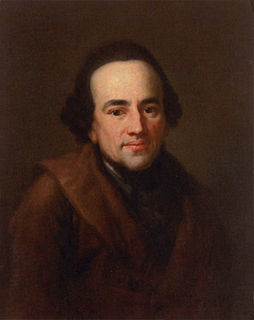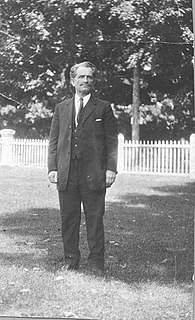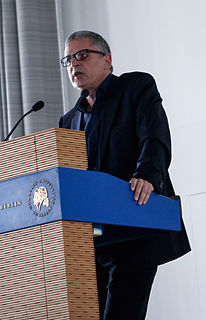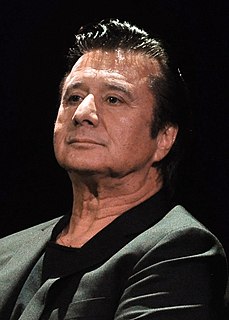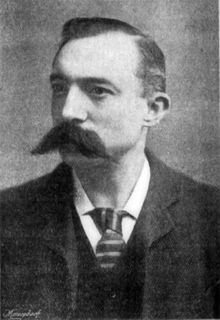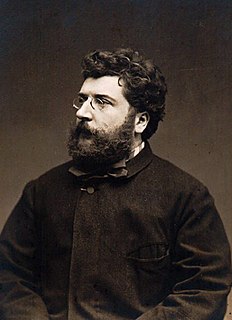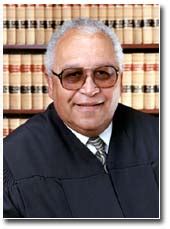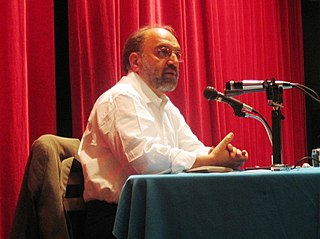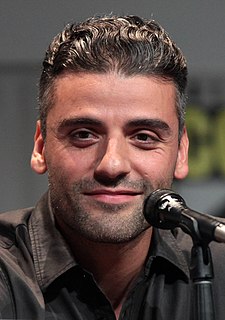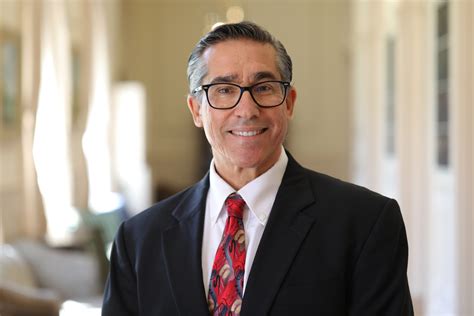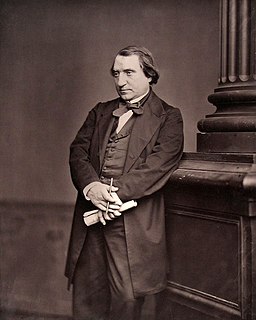Top 1200 Morality And Religion Quotes & Sayings - Page 8
Explore popular Morality And Religion quotes.
Last updated on November 25, 2024.
In vain are Schools, Academies, and Universities instituted, if loose Principles and licentious habits are impressed upon Children in their earliest years . . . . The Vices and Examples of the Parents cannot be concealed from the Children. How is it possible that Children can have any just Sense of the sacred Obligations of Morality or Religion if, from their earliest Infancy, they learn their Mothers live in habitual Infidelity to their fathers, and their fathers in as constant Infidelity to their Mothers.
One form of religion perpetually gives way to another; if religion did not change it would be dead. ... Each time the new ideas appear they are seen at first as a deadly foe threatening to make religion perish from the earth; but in the end there is a deeper insight and a better life with ancient follies and prejudices gone.
When people think about this religion, they'll say "voodoo" this and "voodoo" that in the way the Hollywood movies show it: the sticking of pins in dolls. It's very different than Vodou - which is a religion that comes to Haiti from our ancestors in Africa. I want to differentiate it from the stereotypical, sensationalized view that we see of the religion.
Let us enquire. Who, then, shall challenge the words? Why are they challenged. And by whom? By those who call themselves the guardians of morality, and who are the constituted guardians of religion. Enquiry, it seems, suits not them. They have drawn the line, beyond which human reason shall not pass -- above which human virtue shall not aspire! All that is without their faith or above their rule, is immorality, is atheism, is -- I know not what.
Superstitions, and especially the early cultivation of religion, with its "fear of the Lord" and of unknown mysterious agencies, are especially potent in the development of the instinct of fear. Even the early cultivation of morality and conscientiousness, with their fears of right and wrong, often causes psychoneurotic states in later life. Religious, social, and moral taboos and superstitions, associated with apprehension of threatening impending evil, based on the fear instinct, form the germs of psychopathic affections.
The "establishment of religion" clause of the First Amendment means at least this: Neither a state nor the Federal Government can set up a church. Neither can pass laws which aid one religion, aid all religions, or prefer one religion over another. Neither can force nor influence a person to go to or to remain away from church against his will or force him to profess a belief or disbelief in any religion.
Society mediates between the extremes of, on the one hand, intolerably strict morality and, on the other, dangerously anarchic permissiveness through an unspoken agreement whereby we are given leave to bend the rules of the strictest morality, provided we do so quietly and discreetly. Hypocrisy is the grease that keeps society functioning in an agreeable way, by allowing for human fallibility and reconciling the seemingly irreconcilable human needs for order and pleasure.
It is rather more noble to help people purely out of concern for their suffering than it is to help them because you think the Creator of the Universe wants you to do it, or will reward you for doing it, or will punish you for not doing it. The problem with this linkage between religion and morality is that it gives people bad reasons to help other human beings when good reasons are available.
Over the years my religion has changed and my spirituality has evolved. Religion and spirituality are very different, but people often confuse the two. Some things cannot be taught, but they can be awakened in the heart. Spirituality is recognizing the divine light that is within us all. It doesn't belong to any particular religion; it belongs to everyone.
I was raised Catholic. But if someone says I was raised in some religion, that's insufficient information to actually know what was going on. The real question is Was the religion in the household? The answer is no. Important decisions in the household were executed rationally and secularly. So as a result, the foundations of my reasoning derive not from religion but from the rational analysis of circumstances.
What, but the rapacity of the only men who exercised their reason, the priests, secured such vast property to the church, when a man gave his perishable substance to save himself from the dark torments of purgatory; and found it more convenient to indulge his depraved appetites, and pay an exorbitant price for absolution, than listen to the suggestions of reason, and work out his own salvation: in a word, was not the separation of religion from morality the work of the priests...?
How can anyone think so insanely that the human life has the same value and mankind, the same morality, independent of numbers? It is lucid to me that everytime a new child is born, the value of every human in world decreases slightly. It is obvious to me that the morality of the population explosion is wholly unlike than when man was a sparse, noble species in its beginning.
Humans suffer from self-centred notions as to the nature of life. Humans assume that alien life forms should conform to standards that match our own, including logic and morality. Even among humans, morality is ignored when expedient. Why should we expect more from an alien life form than we demand from ourselves?
What is especially important is addressing the question of how religion can be enforced through political means and what can be done to create a political environment that, on the one hand, acknowledges the role of religion in society, while on the other hand does not impose one religion on the populace at the expense of all others.
Religions are not revealed: they are evolved. If a religion were revealed by God, that religion would be perfect in whole and in part, and would be as perfect at the first moment of its revelation as after ten thousand years of practice. There has never been a religion which fulfills those conditions.
Consider the Koran... this wretched book was sufficient to start a world-religion, to satisfy the metaphysical need of countless millions for twelve hundred years, to become the basis of their morality and of a remarkable contempt for death, and also to inspire them to bloody wars and the most extensive conquests. In this book we find the saddest and poorest form of theism. Much may be lost in translation, but I have not been able to discover in it one single idea of value.
Religion is a means of exploitation employed by the strong against the weak; religion is a cloak of ambition, injustice and vice . . . . Truth breaks free, science is popularized, and religion totters; soon it will fall, in the course of centuries--that is, tomorrow. . . . In good time we shall only have to deal with reason.
As piety, religion and morality have a happy influence on the minds of men, in their public as well as private transactions, you will not think it unseasonable, although I have frequently done it, to bring to your remembrance the great importance of encouraging our University, town schools, and other seminaries of education, that our children and youth while they are engaged in the pursuit of useful science, may have their minds impressed with a strong sense of the duties they owe to their God.
The conservative movement, to which I subscribe, has as one of its basic tenets the belief that government should stay out of people’s private lives. Government governs best when it governs least – and stays out of the impossible task of legislating morality. But legislating someone’s version of morality is exactly what we do by perpetuating discrimination against gays.
It is alleged by men of loose principles, or defective views of the subject, that religion and morality are not necessary or important qualifications for political stations. But the Scriptures teach a different doctrine. They direct that rulers should be men who rule in the fear of God, able men, such as fear God, men of truth, hating covetousness. But if we had no divine instruction on the subject, our own interest would demand of us a strict observance of the principle of these injunctions. . . .
Religion itself cannot but be dynamic which is why "return" is an incorrect term. A return to the forms of religion which perhaps existed a couple of centuries ago is absolutely impossible. On the contrary, in order to combat modern materialistic mores, as religion must, to fight nihilism and egotism, religion must also develop, must be flexible in its forms, and it must have a correlation with the cultural forms of the epoch.
I think there in a great deal to be said for religious education in the sense of teaching about religion and biblical literacy. Both those things, by the way, I suspect will prepare a child to give up religion. If you are taught comparative religion, you are more likely to realise that there are other religions than the one you have been brought up in. And if you are if you are taught to read the bible, I can think of almost nothing more calculated to turn you off religion.
The founders of this nation understood that private morality is the fount from whence sound public policy springs. Replying to Washington's first inaugural address, the Senate stated: "We feel, sir, the force and acknowledge the justness of the observation that the foundation of our national policy should be lain in private morality. If individuals be not influenced by moral principles it is in vain to look for public virtue."
I've always maintained there is no incompatibility between Islam and democracy. The Europeans in general confuse Islam and Islamism. Islamism is a political movement that instrumentalises the religion to get to power, which has nothing to do with religion. Islam here in Tunisia is a religion of openness, of tolerance.
The relations between parents and children are certainly not only those of constraint. There is spontaneous mutual affection, which from the first prompts the child to acts of generosity and even of self-sacrifice, to very touching demonstrations which are in no way prescribed. And here no doubt is the starting point for that morality of good which we shall see developing alongside of the morality of right or duty, and which in some persons completely replaces it.
The religion of art, like the religion of politics, was born from the ruins of Christianity. Art inherited from the old religion the power of consecrating things and endowing them with a sort of eternity; museums are our temples, and the objects displayed in them are beyond history. Politics--or more precisely, Revolution--co-opted the other function of religion: changing human beings and society. Art was an asceticism, a spiritual heroism; Revolution was the construction of a universal church.
We define religion as the assumption that life has meaning. Religion, or lack of it, is shown not in some intellectual or verbal formulations but in one's total orientation to life. Religion is whatever the individual takes to be his ultimate concern. One's religious attitude is to be found at that point where he has a conviction that there are values in human existence worth living and dying for.
Taking care of our planet is like taking care of our houses. Since we human beings come from Nature, there is no point in our going against nature, which is why I say the environment is not a matter of religion or ethics or morality. These are luxuries, since we can survive without them. But we will not survive if we continue to go against nature.
Secularists are wrong when they ask believers to leave their religion at the door before entering into the public square. Frederick Douglass, Abraham Lincoln, Williams Jennings Bryan, Dorothy Day, Martin Luther King - indeed, the majority of great reformers in American history - were not only motivated by faith, but repeatedly used religious language to argue for their cause. To say that men and women should not inject their "personal morality" into public policy debates is a practical absurdity.
Many a man renounces morals, but with great difficulty the conception, 'morality.' Morality is the 'idea' of morals, their intellectual power, their power over the conscience; on the other hand, morals are too material to rule the mind, and do not fetter an 'intellectual' man, a so-called independent, a 'freethinker.'
My chief aim was to combat the view that there can be no true morality without supernatural sanctions. So I argued at length that the social, or altruistic, impulses are the real source of morality, and that an ethic based on these impulses has far more claim on our allegiance than an ethic based on obedience to the commands of a God who created tapeworms and cancer-cells.
So much confusion about belief in God, morality, and science arises, not from what people say they believe, but rather from mistaken assumptions about God, morality, and science that they don't know they believe. In Three Theological Mistakes, Ric Machuga, with clarity and grace, explains the genesis of these mistakes and provides the intellectual tools by which we can recover from them.
We can assume that most people, most of the time, are moral creatures. But imagine that this morality is like a gearshift that at times gets pushed into neutral. When that happens, morality is disengaged. If the car happens to be on an incline, car and driver move precipitously downhill. It is then the nature of the circumstances that determines outcomes, not the driver's skills or intentions.
Morality has been conceived up to the present in a very narrow spirit, as obedience to a law, as inner struggle between opposite laws. As for me, I declare that when I do good I obey no one, I fight no battle and win no victory. The cultivated person has only to follow the delicious incline of his or her inner impulses. Be beautiful and then do at each moment whatever your heart may inspire you to do. This is the whole of morality.
We are driven to confess that we actually care more for religion than we do for religious theories and ideas: and in merely making that distinction between religion and its doctrine-elements, have we not already relegated the latter to an external and subordinate position? Have we not asserted that "religion itself" has some other essence or constitution than mere idea or thought?
I try to practice my religion in a very devout way and follow the teachings of my church in my own personal life, but I don't believe in America, a first amendment nation, where we don't raise any religion over the other, and we allow people to worship they please, that the doctrines of any religion should be mandated for everyone.
Morality is a biological adaptation no less than are hands and feet and teeth... Considered as a rationally justifiable set of claims about an objective something, ethics is illusory. I appreciate that when somebody says, 'Love thy neighbor as thyself,' they think they are referring above and beyond themselves... Nevertheless... such reference is truly without foundation. Morality is just an aid to survival and reproduction... and any deeper meaning is illusory...
To speak specifically of our problem with the Muslim world, we are meandering into a genuine clash of civilizations, and we're deluding ourselves with euphemisms. We're talking about Islam being a religion of peace that's been hijacked by extremists. If ever there were a religion that's not a religion of peace, it is Islam.
THERE is no method of reasoning more common, and yet none more blameable, than, in philosophical disputes, to endeavour the refutation of any hypothesis, by a pretence of its dangerous consequences to religion and morality. When any opinion leads to absurdities, it is certainly false; but it is not certain that an opinion is false, because it is of dangerous consequence. Such topics, therefore, ought entirely to be forborne; as serving nothing to the discovery of truth, but only to make the person of an antagonist odious.


